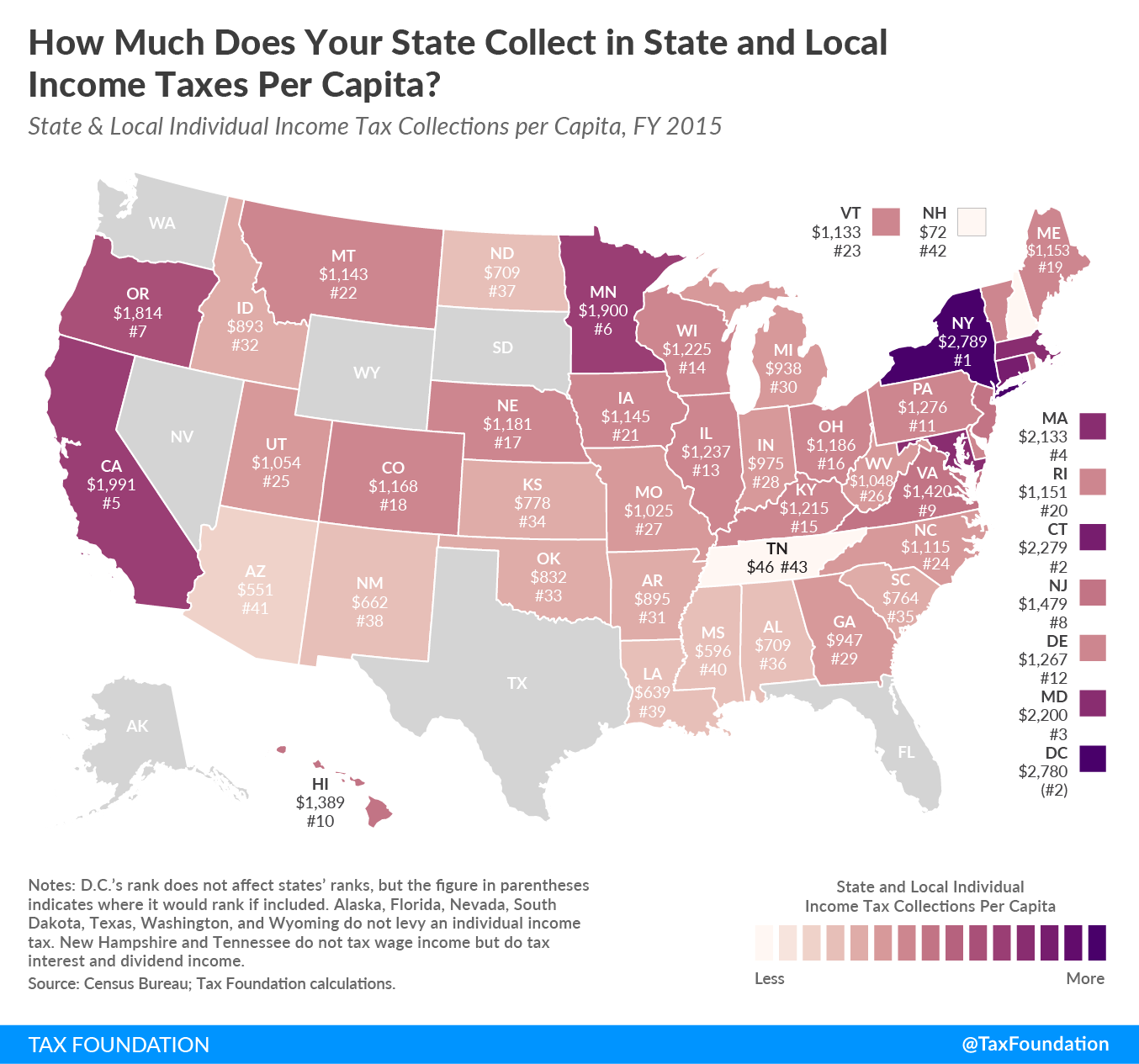The individual income taxAn individual income tax (or personal income tax) is levied on the wages, salaries, investments, or other forms of income an individual or household earns. The U.S. imposes a progressive income tax where rates increase with income. The Federal Income Tax was established in 1913 with the ratification of the 16th Amendment. Though barely 100 years old, individual income taxes are the largest source of tax revenue in the U.S. is one of the most significant sources of revenue for state and local governments, accounting for 23.5 percent of state and local tax collections in fiscal year (FY) 2015 (the most recent data available). Other significant sources of state and local revenue include property taxes, which accounted for 31.1 percent of state and local taxA tax is a mandatory payment or charge collected by local, state, and national governments from individuals or businesses to cover the costs of general government services, goods, and activities. collections, as well as general sales taxes, which matched the individual income tax at 23.5 percent of state and local tax collections.
The below map shows combined state and local individual income tax collections per capita for each state in FY 2015. Forty-one states and the District of Columbia levy broad-based taxes on wage income and investment income, while two states – New Hampshire and Tennessee – tax investment income but not wage income. Tennessee’s tax on investment income – known as the “Hall tax” – is in the process of being phased out and will be fully repealed by 2021. Seven states do not levy an individual income tax: Alaska, Florida, Nevada, South Dakota, Texas, Washington, and Wyoming.
On average, state and local governments collected $1,144 per person from individual income taxes, but collections varied widely from state to state. States collecting the most in per capita state and local individual income taxes were New York ($2,789), Connecticut ($2,279), and Maryland ($2,200). The lowest per capita individual income tax collections occurred in the states that tax dividend and interest income but not wage income: Tennessee ($46) and New Hampshire ($72). Of the states that tax wage income, lowest per capita collections occurred in Louisiana ($639), Mississippi ($596), and Arizona ($551).
Note: This is part of a map series in which examine per capita state tax collections
- How High are State and Local Tax Collections in Your State?
- How Much Does Your State Collect in Sales Taxes Per Capita?
- How Much Does Your State Collect in Corporate Income Taxes Per Capita?
- How Much Does Your State Collect in Excise Taxes Per Capita?
- How Much Does Your State Collect in Property Taxes Per Capita?
